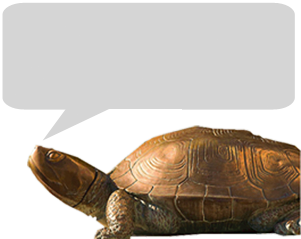Renowned UMD Professor Rita Colwell Named a Fellow in the National Academy of Inventors
Renowned UMD Professor Rita Colwell Named a Fellow in the National Academy of Inventors
Rita Colwell, a Distinguished University Professor in the University of Maryland Institute for Advanced Computer Studies (UMIACS), has been named a Fellow in the National Academy of Inventors (NAI).
This is the latest of Professor Colwell’s many recognitions and awards, which also include the 2006 U.S. National Medal of Science; the 2010 Stockholm Water Prize; “The Order of the Rising Sun, Gold and Silver Star,” awarded by the Emperor of Japan; and membership in the U.S. National Academy of Sciences, Royal Society of Canada, Swedish Royal Academy of Science, Irish Royal Academy of Science, and the Bangladesh and Indian academies of Science.
The National Academy of Inventors recognizes “academic inventors who have demonstrated a prolific spirit of innovation in creating or facilitating outstanding inventions that have made a tangible impact on quality of life, economic development, and the welfare of society.” This is a well suited recognition, colleagues say, for a scientist who has uncovered new insights, bucked prevailing wisdom, applied existing technologies in innovative ways and created new technologies and initiatives to advance human knowledge and human health.
Colwell’s many achievements and firsts include:
- a dozen U.S. patents, most involving computational biology;
- founding the company CosmosID, which uses next-generation DNA sequencing to advance new discoveries in microbiome research; and
- leading numerous science organizations, including the National Science Foundation (NSF) from 1998-2004 as NSF’s first woman director.
However, Colwell, a microbiologist, is world renowned in large part for her fundamental and highly innovative work to understand the Vibrio bacteria that cause cholera and reduce the incidence and impact of this disease around the world. Cholera, an acute diarrheal infection caused by ingestion of food or water contaminated by Vibrio cholerae, is responsible for an estimated 3–5 million illnesses and more than 100,000 deaths every year, according to the World Health Organization.
As part of her cholera work, she was the first to:
- use DNA sequencing to finally prove to a doubting healthcare establishment that the Vibrio bacterium that causes cholera was, in fact, the same water-borne Vibrio bacterium found naturally in the environment;
- write a computer program that could identify this bacterium;
- show that this bacterium can lie dormant awaiting favorable conditions, and that its natural habitat, or host, is one of the tiny organisms that constitute marine plankton;
- track and predict cholera outbreaks with satellite data;
- demonstrate that warmer surface ocean temperatures stimulate the growth of cholera bacteria, and directly lead to an increase in the number of cholera cases;
- create filters made of old sari cloth that can strain plankton and its hitchhiking bacteria out of drinking water.
“Rita Colwell’s tireless dedication toward improving human health by using computational resources is an inspiration to the entire UMIACS research community. We are very proud to call her a colleague,” said Mihai Pop, professor of computer science and interim director of UMIACS.
Colwell’s discoveries led her to conclude that climate (on a macroscale) has significant impacts on certain human diseases, notably those transmitted by vectors like mosquitoes or zooplankton. In 2016 Colwell led an international study showing that over the past half century there has been a clear correlation between warming of North Atlantic waters, increasing numbers of Vibrio bacteria in those waters, and rising numbers of people along U.S. and European North Atlantic coasts who have become infected by pathogenic Vibrio bacteria.
Read a Big Ten Network Q&A with Professor Colwell about her selection to the NAI here.
Professor Colwell is the fourth University of Maryland faculty member to earn recognition from the National Academy of Inventors. Distinguished University Professor Ben Shneiderman, in the department of computer science, John S. Baras, professor and Lockheed Martin Chair in Systems Engineering, and Robert E. Fischell, a UMD alum and a professor of practice in the Fischell Department of Bioengineering, were all named NAI fellows in 2015.
Colwell will be officially honored at a ceremony and banquet on April 6, 2017 in Boston, Massachusetts. With the election of the 2016 class, there are now 757 NAI Fellows, representing 229 research universities and governmental and nonprofit research institutes.
January 20, 2017
Prev Next
Connect
Did You Know

UMD is the only major public research university inside the Washington, DC beltway!!
